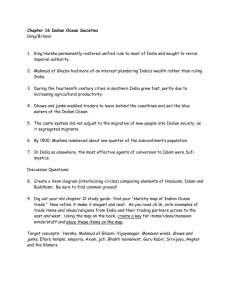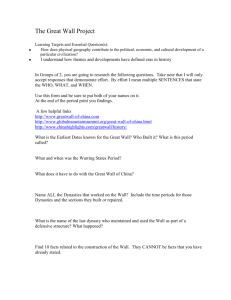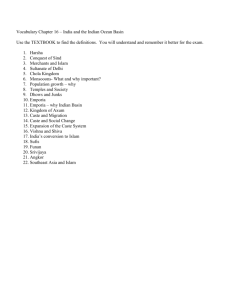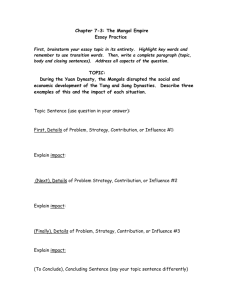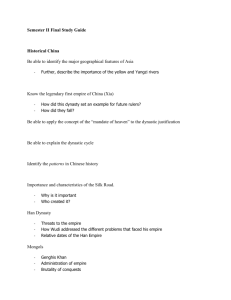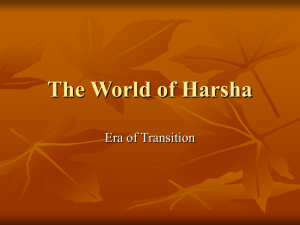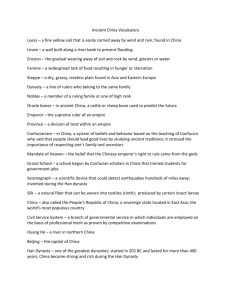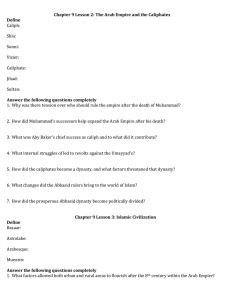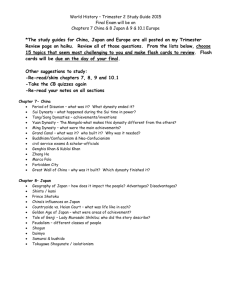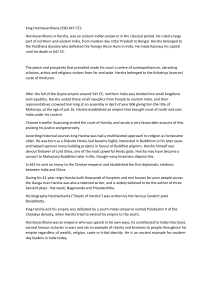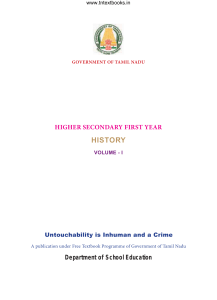File
advertisement
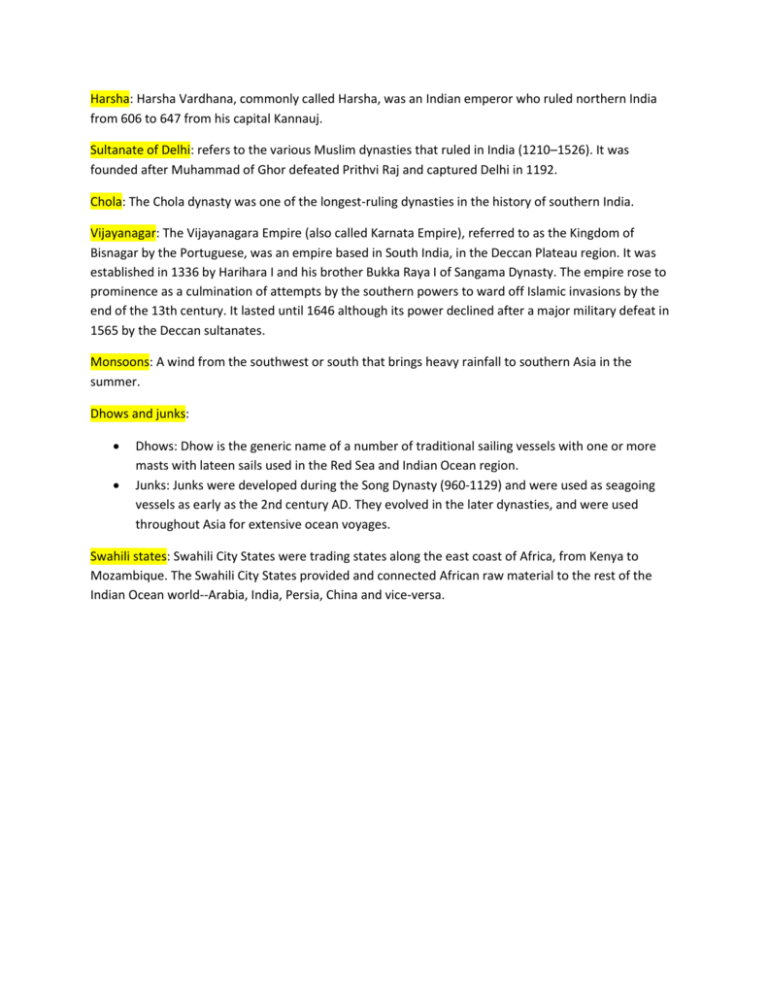
Harsha: Harsha Vardhana, commonly called Harsha, was an Indian emperor who ruled northern India from 606 to 647 from his capital Kannauj. Sultanate of Delhi: refers to the various Muslim dynasties that ruled in India (1210–1526). It was founded after Muhammad of Ghor defeated Prithvi Raj and captured Delhi in 1192. Chola: The Chola dynasty was one of the longest-ruling dynasties in the history of southern India. Vijayanagar: The Vijayanagara Empire (also called Karnata Empire), referred to as the Kingdom of Bisnagar by the Portuguese, was an empire based in South India, in the Deccan Plateau region. It was established in 1336 by Harihara I and his brother Bukka Raya I of Sangama Dynasty. The empire rose to prominence as a culmination of attempts by the southern powers to ward off Islamic invasions by the end of the 13th century. It lasted until 1646 although its power declined after a major military defeat in 1565 by the Deccan sultanates. Monsoons: A wind from the southwest or south that brings heavy rainfall to southern Asia in the summer. Dhows and junks: Dhows: Dhow is the generic name of a number of traditional sailing vessels with one or more masts with lateen sails used in the Red Sea and Indian Ocean region. Junks: Junks were developed during the Song Dynasty (960-1129) and were used as seagoing vessels as early as the 2nd century AD. They evolved in the later dynasties, and were used throughout Asia for extensive ocean voyages. Swahili states: Swahili City States were trading states along the east coast of Africa, from Kenya to Mozambique. The Swahili City States provided and connected African raw material to the rest of the Indian Ocean world--Arabia, India, Persia, China and vice-versa.
